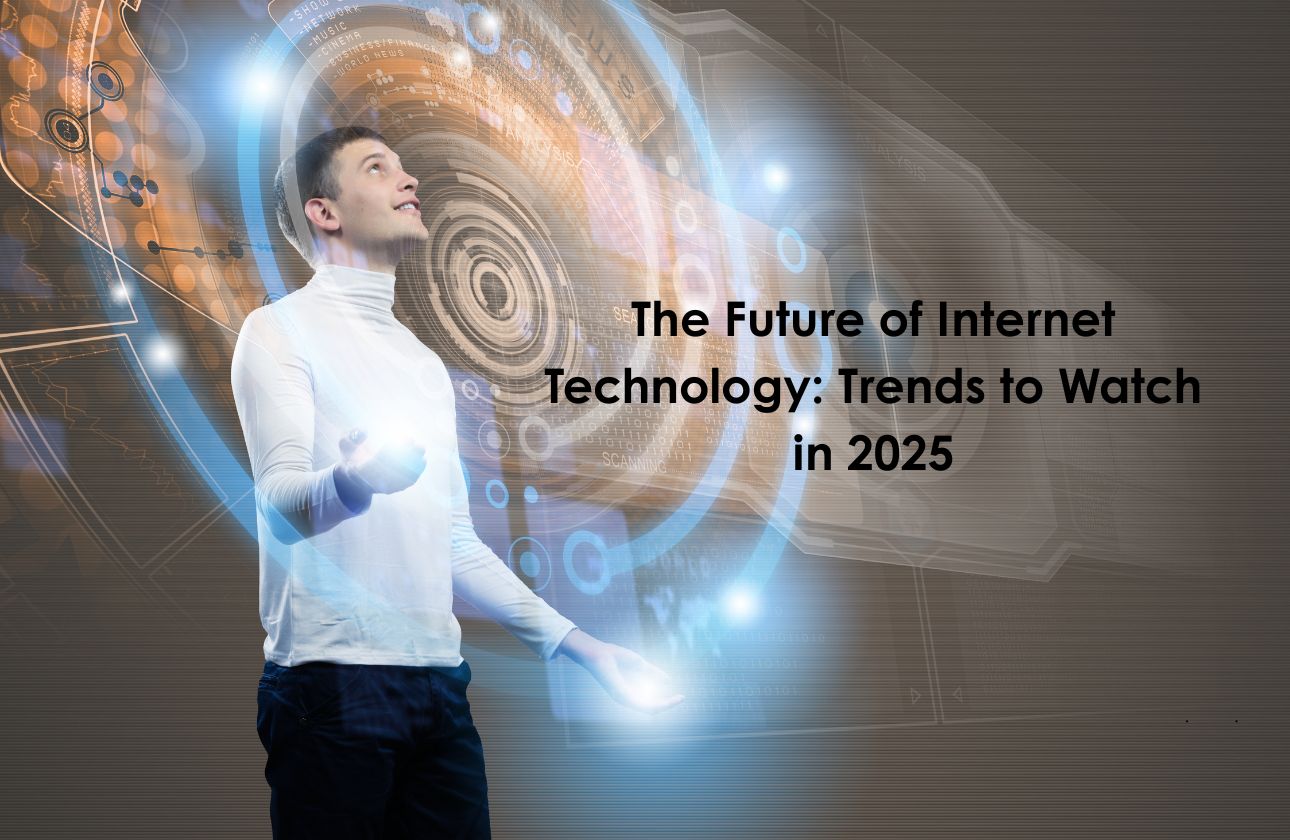Introduction
The internet is constantly evolving, shaping how we communicate, work, and interact with the world. As we move into 2025, emerging technologies are set to redefine our digital experiences. From AI-driven automation to decentralized web systems, the future of internet technology promises to be more intelligent, secure, and immersive.
1. The Rise of 6G Networks
With 5G still expanding worldwide, research and development for 6G are already underway. Expected to be significantly faster than its predecessor, 6G aims to provide ultra-low latency, improved energy efficiency, and enhanced connectivity. This will pave the way for advanced applications such as real-time holographic communications and AI-powered smart cities.
2. The Expansion of the Internet of Things (IoT)
IoT devices are becoming more sophisticated and widely adopted. In 2025, smart homes, autonomous vehicles, and connected wearables will seamlessly integrate into everyday life. Improved AI and machine learning will allow IoT systems to function with greater efficiency and responsiveness, making automation an essential part of our routines.
3. AI-Powered Internet Experiences
Artificial intelligence is set to play a more prominent role in shaping user experiences on the internet. From personalized search engine results to AI-generated content, machine learning will drive more intuitive and predictive digital interactions. Chatbots and virtual assistants will become smarter, offering human-like communication and support.
4. The Growth of the Metaverse
The metaverse is expanding beyond gaming into various industries, including education, retail, and healthcare. Companies are investing in virtual and augmented reality (VR/AR) to create immersive digital environments where users can socialize, work, and shop. 2025 will likely see greater advancements in hardware, making VR/AR experiences more accessible and realistic.
5. Decentralization and Web3 Innovations
The shift towards a decentralized internet (Web3) is gaining momentum. Blockchain-based applications, decentralized finance (DeFi), and non-fungible tokens (NFTs) are reshaping digital ownership and online transactions. By reducing reliance on centralized authorities, Web3 technologies promise greater security, privacy, and user control over data.
6. Cybersecurity Advancements
As digital threats continue to rise, cybersecurity will remain a top priority. AI-driven security systems will detect and prevent cyberattacks more efficiently. Additionally, quantum encryption technology is expected to emerge as a groundbreaking method to protect sensitive data, ensuring a safer online experience for businesses and individuals alike.
7. Sustainable Internet Solutions
With growing concerns over energy consumption, the internet industry is embracing sustainable practices. Data centers are transitioning to green energy solutions, and companies are adopting eco-friendly infrastructure to reduce carbon footprints. Expect to see a rise in innovations that promote a more energy-efficient digital ecosystem.
The future of internet technology in 2025 will be defined by speed, intelligence, and security. With advancements in AI, 6G networks, and the metaverse, our digital experiences will become more immersive and efficient. As Web3 gains traction and cybersecurity strengthens, the internet will continue to evolve into a smarter and safer space. Staying informed about these trends will be essential for businesses and individuals to adapt and thrive in the digital age.




Comments (0)